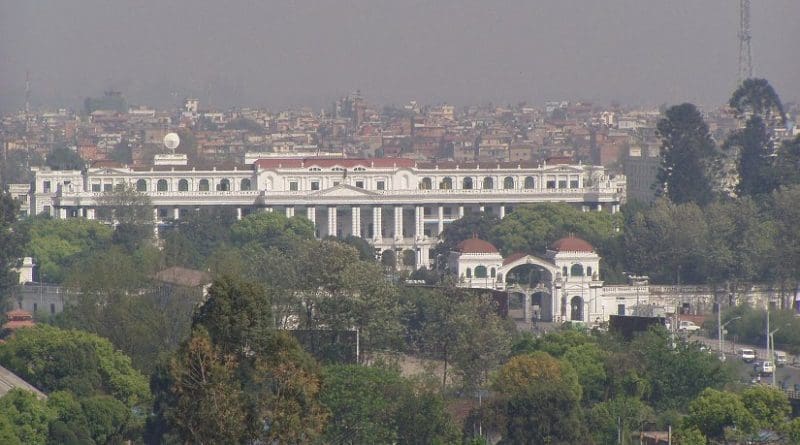Nepal’s Political Impasse – OpEd
No one should forget that more than sixteen thousand people have sacrificed their lives to reach where Nepal is today. What propelled them to offer their blood for the country? What were the promises they dreamt of? The answers are Peace, Constituent Assembly and Good governance. However, these three essential elements have proved to be the political metaphors coined by the parties to gain undue leverage. The present government has done nothing to gain the confidence of the public. None of the governments have been able to deliver any hope to the people.
After the end of People’s war, the public had high hopes on political parties. The insanity of holding the political limelight has stalled the country’s development and deteriorated the law and order situation. The parties have been using the people and the resources of the country for their own benefit. The deliberate negligence of the government and political parties have weakened the social fabric. As a result, the country is deeply traumatised by the overwhelming cases of crimes. Crime records have skyrocketed. Numerous criminal groups operate across the length and breadth of the country. Their commodities range from threat, intimidation, extortion, kidnapping, rape and murder. There are more than two hundred dons in the valley alone who have been responsible for a gamut of underworld activities. Apart from the organized crimes, individual crimes have also increased phenomenally. The case of Rosy Maharjan, Mishri khatri, Bishwan Thapa, Faizan Ahmed, Dawa Tshering, Shrawn Khadka are palpable examples of cold blooded murders.
These days, the debate of restructuring of state has vilified the image of political parties from bad to worst. More than the reformation of the state, the cabinet needs a complete overhaul. The people are shocked to acknowledge that some of the elected parliamentarians have been accused of running criminal racket. In addition to that, a handful of parliamentarians have not even received proper schooling. How can one hand over the responsibility of the country to someone with such an unsavoury status?
Many countries have stringent legal procedure to enter the parliament like the disclosure check of his or her background and educational qualification. Such measures should come into force to allow only the right people into the parliament.
The sole activity of political parties has been to promote their political momentum. The much awaited constituent Assembly is still on tenterhooks. Each time, a new reason pops up and the timeline is pushed forward. Will the people really get a constituent Assembly?
The third promise was ‘Good Governance’. The spiking figure of crime illustrates how the country has been inundated by it. Murder and Abduction have been central issues not only in the capital but in Nepal as a whole. However, Kathmandu bags the infamous record of having more than forty percent of the overall crimes of the country. With the rising number of criminal records and the government’s failure to tackle, the people are directly hit by the impact. More and more youngsters are lured towards criminal activities. The overall chronology of murders carried out within the country shows that the police have been inefficient in dealing with the crimes. The capital has seen appalling instances of murders and loot in public places. The shooting of Jamin Shah, Prem Krishna Maharjan and Anjani Kumar Chachan are examples of organized crimes and a crucial indication of security lax. The abduction of Pawan Sanghai by one of the political stalwarts show how easily easily people can be abducted.
Why is the crime culture taking root within the Nepalese society? How long will this trend of lawlessness endure? These are some of the formidable questions that the present government will have to answer. The involvement of politicians in criminal activities has further exacerbated the situation. Most of the criminals are protected by major political parties. Political gains and weak rule of law are the major factors behind augmenting criminal activities. The unnatural tendency of politicizing the crime has shown that the government must form a common consensus in implementing rigorous regulation. Provisions of strict penalty should be introduced in severe cases like murder and abduction. The absence of substantial law will further entice the culprits in committing more crimes.
Despite being a democratic country, Nepal’s democratic value has been hijacked by the politicians and they have been using it for their own political gains. The people must be aware that the political establishment is not hollowed by the criminalization of politics or the politicization of crimes. The freedom that the Nepalese have earned after years of struggle is precious to lose.

